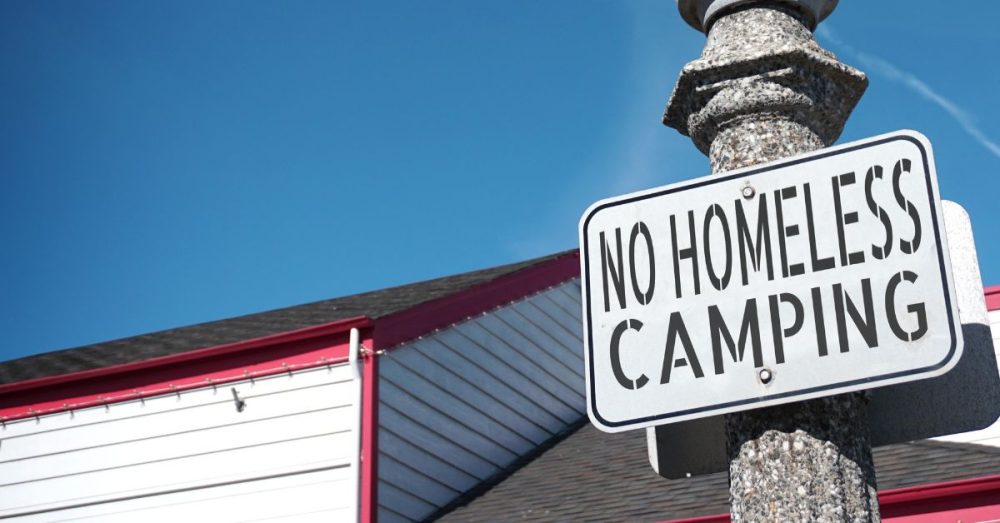It looks like the Supreme Court’s decision to allow municipalities to enforce bans on public camping may ultimately not affect Texas much, at least not in San Antonio.
As previously reported by The Dallas Express, the high court ruled that a city in Oregon could issue tickets to homeless people who violate its prohibition on camping in public.
The ruling has spurred officials in Dallas to consider the implications in their jurisdiction, where homelessness, vagrancy, and aggressive panhandling are “major” problems, according to surveyed residents.
Still, Terri Behling, the communications director for the “one-stop-shop” homeless services nonprofit Haven for Hope, seemed to suggest that the ticketing strategy that SCOTUS greenlit may not be the most productive enforcement mechanism.
“If somebody is getting a fine for public camping, but they don’t have the means to pay the fine. It can create more barriers for them to get housing and or employment,” Behling said, according to KSAT.
Nevertheless, she noted that Haven for Hope already works with the criminal justice system in San Antonio to resolve minor issues its clients face. For instance, the nonprofit works with officials to refer ticketed clients to a “Community Court” where fines can be waived.
As DX has previously reported, the “one-stop shop” model used by Haven for Hope in San Antonio has been credited with a 77% reduction in unsheltered homelessness in the city’s downtown area. Some local stakeholders are working to deploy the model in Dallas as it has polled favorably among residents. However, it is unclear whether City officials will support the effort.
Here’s some of what KSAT reported on the reaction to the Supreme Court’s ruling in San Antonio:
The U.S. Supreme Court’s recent decision to allow cities to enforce general bans on public camping, which are often aimed at homeless people, does not appear likely to affect San Antonio.
The court’s 6-3 decision overturned a California-based appeals court decision that found such laws amount to cruel and unusual punishment when shelter space is lacking. The court found that rules like those in Grants Pass, Oregon, which forbid public camping or even sleeping with a rolled-up shirt, did not violate the Eighth Amendment’s ban on “cruel and unusual punishment.”
The June 28 decision significantly affects the Western states under the jurisdiction of the U.S. 9th Circuit Court of Appeals. In 2019, the appellate court ruled that cities could not completely ban public camping if there wasn’t enough shelter space.
Texas was not one of the nine states limited by that decision, but the Supreme Court ruling means any such camping bans can continue.
“Had the Supreme Court come to a different decision, say, had it adopted the reasoning that was kind of the dissenting opinions, then that would have had implications that affected current policy here in Texas and in San Antonio,” said Greg Slotnick, a clinical assistant professor at St. Mary’s University School of Law and board member of Close to Home San Antonio. “However, it did not. That was a 6-3 majority opinion. And that more or less affirmed the baseline that states and municipalities are permitted to engage in certain bans that are generally applicable.”


